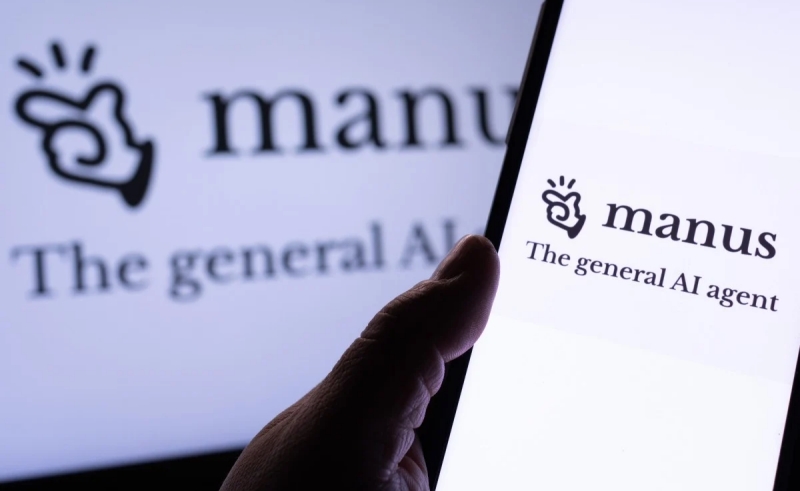
Chinese start-up Butterfly Effect, creator of general-purpose artificial intelligence (AI) agent Manus, appears poised to shake up the red-hot domestic market for large language models (LLMs), as it focuses on applications beyond ChatGPT-like chatbots.
Tencent Holdings-backed Butterfly Effect has caught the AI community’s attention at home and abroad, following its invitation-only online preview last week for Manus, which can execute various practical tasks such as creating a custom website, according to a demonstration video online at manus.im.
Touting its edge over chatbots in terms of performance, Manus also claims it can quickly devise an itinerary for a trip to Japan, provide an in-depth analysis of Tesla’s stock and offer real-estate tips in New York based on a family’s requirements.
Butterfly effect founder and chief executive Red Xiao Hong, 33, said an AI agent is “more like a human being”, compared with how chatbots perform, because it does not only think and answer questions, but interacts with its environment, collects feedback and uses the feedback as a new prompt.
In an interview with Tencent’s news portal in February that was published last week, Xiao said he had not considered developing LLMs “from day one” because he wanted to focus on applications, which is a segment of the AI industry that has still not matured. LLMs are the technology underpinning generative AI services like ChatGPT.
Manus was built on existing LLMs, including Anthropic’s Claude and fine-tuned versions of Alibaba Group Holding’s Qwen, according to Butterfly Effect co-founder and chief scientist Peak Ji Yichao in a Monday post on X. Alibaba owns the Post.
Xiao, who frequently shares his thoughts on Chinese social-media platform Jike, said in his latest post that he is busy “expanding [computing] capacity and fixing bugs”.
Butterfly Effect’s commitment to applications shows another avenue for innovation by a Chinese AI start-up, following DeepSeek’s recent breakthrough of building AI models at a fraction of the cost and computing power typically required by bigger tech firms in their LLM projects.
Xiao’s view also partly echoes that of Robin Li Yanhong, the co-founder, chairman and chief executive of Baidu, who called on China’s tech leaders to focus more on building real-world applications powered by AI, according to a panel discussion at the World Artificial Intelligence Conference in Shanghai in July last year.
“In 2023, intense competition among over 100 LLMs emerged in China, resulting in a significant waste of resources, particularly computing power,” Li said.
Since OpenAI released ChatGPT in November 2022, both Big Tech companies and start-ups have primarily put their efforts into building a family of LLMs, the application programming interface of these models for developers, and chatbots for individual and enterprise users.
The race to train LLMs led to heavy investments in computing power and a price war, as these firms pushed to monetise their products.
But after DeepSeek sent shock waves across the AI community for its low-cost approach to developing models, a number of Chinese tech firms are now scrambling to raise fresh funds and push their own open-source LLMs to market.
Open source gives public access to a software program’s source code, allowing third-party developers to modify or share its design, fix broken links or scale up its capabilities.
Social-media giant ByteDance, owner of TikTok and Douyin, was said to have sought to acquire Butterfly Effect for US$30 million in early 2024, but its offer was turned down, according to a report by Chinese media Leiphone.
Neither ByteDance nor Butterfly Effect immediately responded to an emailed request for comment on Monday.
According to Butterfly Effect, the AI agent even outperformed OpenAI’s Deep Research based on the GAIA benchmark, a third-party measure of general AI assistants.
While Manus’ preview sparked significant interest across the AI community, the application’s limited availability has some people doubt its capabilities.
“The current invite-only mechanism is due to limited server capacity at this stage,” Manus product partner Zhang Tao said in a Jike post last week, adding that “the current version of Manus is still in its infancy, far from what we aim to deliver in our final product”.
Xiao founded Butterfly Effect two months before ChatGPT was launched in 2022. Its first product was an AI assistant called Monica.
With Manus shrouded in curiosity and wonder, the AI community’s spotlight is now fixed on Xiao, who was known as a serial entrepreneur during his student days at Huazhong University of Science and Technology (HUST) in Wuhan, capital of central Hubei province.
In university, Xiao led a team of students in launching multiple in-campus products, including a tool that helps users pick the most suitable major, according to an article published last week on the website of HUST’s School of Software Engineering. Xiao graduated with a bachelor’s degree in software engineering.
Born in a small town in Jian, a city in eastern Jiangxi province, Xiao developed his interest in computer science at a young age, according to his father, who was interviewed by local broadcaster JXNTV. In Xiao’s bedroom at his parents’ home, he kept his favourite books on a shelf including a biography of Apple co-founder Steve Jobs and philosophical guide The Big Questions.
Some members of Butterfly Effect have also been in the limelight. Chief scientist Ji was named the youngest among those listed by Forbes China in its “30 Under 30” rankings in 2012 and 2013. Ji, who created mobile browser Mammoth when he was still in high school, founded Peak Labs in 2012 with investment from ZhenFund and Sequoia China, which had been spun off as HongShan.
When Chinese media National Business Daily last week visited Butterfly Effect’s offices in Wuhan, a notice on the start-up’s gate said: “Closed for development. Please do not disturb.”





